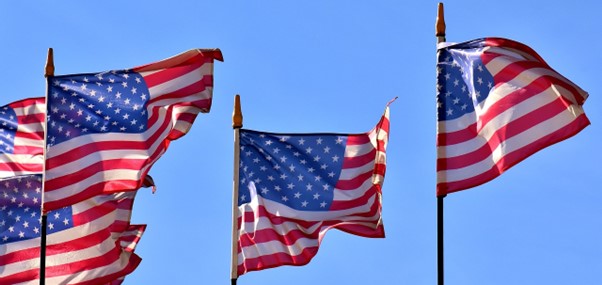US Packaging EPR Update: Tracking Progress and Challenges Across Key States
by Justin Given at 14:00 in Packaging, Emerging
Extended Producer Responsibility (EPR) laws for packaging exist in five U.S. states: Maine, California, Oregon, Colorado, and Minnesota. These laws make producers financially and logistically responsible for managing packaging waste. Eco-modulation fees, which reduce costs for sustainable packaging choices, are a key feature. Maine was first (2021), followed by Oregon and Colorado, California, and finally Minnesota in 2024.

State-level leadership is still the main driving force for packaging EPR in the U.S. While federal action remains limited, the combination of EPR laws, recycled content mandates, and plastic bans at the state level suggests that change is gradually underway.
California
California's program, managed by the Circular Action Alliance, sets aggressive recycling and reduction targets for 2032.The initial framework for implementing California's SB 54 was scheduled to be finalized by 8 March 2025. However, Governor Gavin Newsom recently directed CalRecycle, the department responsible for overseeing the program, to revise the proposed regulations. This decision came after feedback from both environmental groups and industry stakeholders.
Environmental groups argue that the delay reflects pressure from industry groups seeking to weaken the bill's environmental targets. On the other hand, businesses have raised concerns about the financial burden and logistical challenges of complying with the law's strict requirements. The decision to delay gives CalRecycle more time to refine the regulations and address these competing interests.
California's approach to EPR is being closely watched by other states considering similar legislation. New York, for example, has reintroduced and is developing its packaging EPR bill from the previous session that has similar concerns from the industry as California. The delay in California could influence how other states structure their programs, particularly regarding the balance between environmental goals and industry concerns.
Colorado
CAA submitted its plan proposal to Colorado's Producer Responsibility Advisory Board, outlining how it will implement the state's new Extended Producer Responsibility (EPR) program. The plan includes compliance tracking, minimum recycling targets, post-consumer recycled content goals, and a dues structure. It also proposes strategies for increasing reuse and refill practices, educating the public, and ensuring responsible end markets for recyclables.
Maine
On 5 December 2024, the Board of Environmental Protection finalised rules for Maine's EPR for packaging law. CAA has actively participated and submitted comments throughout the process. The Maine Department of Environmental Protection (DEP) plans to release the draft packaging material types list by the end of March 2025, followed by a comment period and a stakeholder meeting in April.
Minnesota
On 18 February, the Minnesota Pollution Control Agency (MPCA) confirmed CAA as a registered PRO for the state's EPR program. By 1 July 2025, all producers must become members of an MPCA-registered PRO to comply with the state's packaging waste recycling regulations.Oregon
Circular Action Alliance (CAA) has received approval from the Oregon Department of Environmental Quality for the state's first EPR Program Plan, part of the Plastic Pollution and Recycling Modernization Act (RMA). The plan outlines initiatives to expand recycling access, improve infrastructure, and promote education while reducing plastic pollution. Producers will be required to submit their supply data along with other information on brands and subsidiaries, to CAA by 31 March 2025. Starting 1 July 2025, CAA will coordinate and fund recycling programs in collaboration with producers and other stakeholders.
Proposed Legislation
Several states have introduced new EPR proposals. Hawaii has proposed an EPR bill requiring producers to register and report to the Department of Health, along with this there is an additional proposal for the Department of Health to conduct a statewide needs assessment to evaluate the requirements to improve recycling collection services. Washington, aiming to pass its fifth EPR bill in early 2025, is also joining the movement. Additionally, New York legislators have reintroduced the Packaging Reduction and Recycling Infrastructure Act (S1464), continuing their push for comprehensive recycling legislation.Need Help?
If you have questions about packaging EPR reporting in the U.S., contact us today. Click here to receive regular updates on blog posts, webinars, and regulatory changes directly to your inbox
Click here to receive regular updates on blog posts, webinars, and regulatory changes directly to your inbox

